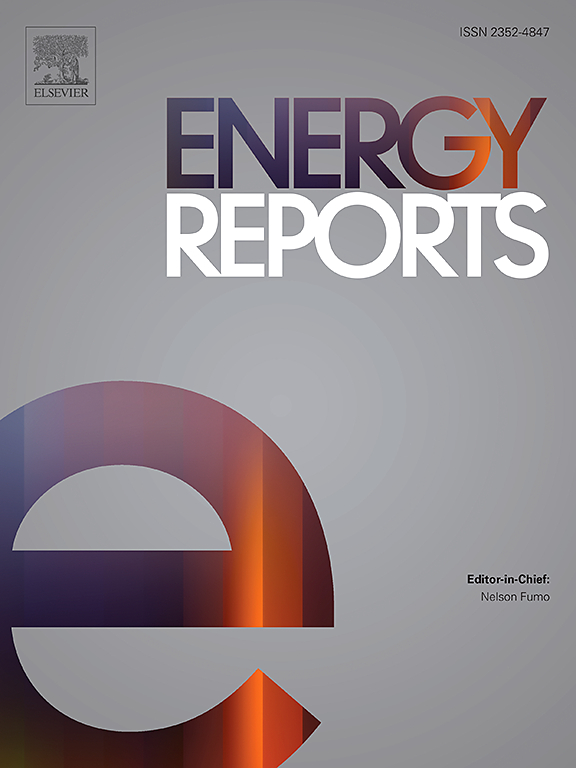Accurate state-of-charge estimation of LiFePO4 battery: An adaptive extended kalman filter approach using particle swarm optimization
IF 5.1
3区 工程技术
Q2 ENERGY & FUELS
引用次数: 0
Abstract
Ensuring the safety and reliability of LiFePO4 battery relies heavily on accurate state of charge (SOC) estimation. The Extended Kalman Filter (EKF) algorithm is widely used for SOC estimation, but this method struggles to distinguish subtle open circuit voltage (OCV) variations and often misinterprets them as noise. This poses a challenge to the methodology for estimating SOC based on OCV. In this paper, an innovative method is presented to overcome this issue and enhance SOC estimation accuracy during the OCV plateau period. This method introduces an adaptive gain in the EKF, which is specifically designed for the OCV plateau period. To optimize the parameters of the adaptive gain function and improve the convergence performance of the estimator, Particle Swarm Optimization (PSO) is employed. By adapting the Kalman gain dynamically with this adaptive gain, the EKF effectively rebalances the confidence level between prior estimation and measurement, which can reduce the impact of OCV noise on SOC estimation and improve accuracy significantly. Extensive simulation experiments validate the practicality and effectiveness of this method and demonstrate its ability to enhance SOC estimation accuracy for LiFePO4 battery during the OCV plateau period. Compared with the traditional EKF, the maximum error of this method does not exceed 2 %, and the average MAE is reduced by 27.64 % and the average MSE is reduced by 39.24 %.
LiFePO4电池荷电状态的精确估计:基于粒子群优化的自适应扩展卡尔曼滤波方法
确保LiFePO4电池的安全性和可靠性在很大程度上依赖于准确的荷电状态(SOC)估算。扩展卡尔曼滤波(EKF)算法被广泛用于SOC估计,但该方法难以区分细微的开路电压(OCV)变化,并且经常将其误解为噪声。这对基于OCV的SOC评估方法提出了挑战。本文提出了一种创新的方法来克服这一问题,提高OCV平台期SOC的估计精度。该方法在EKF中引入了一个专门针对OCV平台期设计的自适应增益。为了优化自适应增益函数的参数,提高估计器的收敛性能,采用了粒子群算法(PSO)。EKF通过动态调整卡尔曼增益,有效地平衡了先验估计和测量之间的置信度,降低了OCV噪声对SOC估计的影响,显著提高了SOC估计的精度。大量的仿真实验验证了该方法的实用性和有效性,并证明了该方法能够提高OCV平台期LiFePO4电池荷电状态估计的精度。与传统EKF相比,该方法的最大误差不超过2 %,平均MAE降低27.64 %,平均MSE降低39.24 %。
本文章由计算机程序翻译,如有差异,请以英文原文为准。
求助全文
约1分钟内获得全文
求助全文
来源期刊

Energy Reports
Energy-General Energy
CiteScore
8.20
自引率
13.50%
发文量
2608
审稿时长
38 days
期刊介绍:
Energy Reports is a new online multidisciplinary open access journal which focuses on publishing new research in the area of Energy with a rapid review and publication time. Energy Reports will be open to direct submissions and also to submissions from other Elsevier Energy journals, whose Editors have determined that Energy Reports would be a better fit.
 求助内容:
求助内容: 应助结果提醒方式:
应助结果提醒方式:


